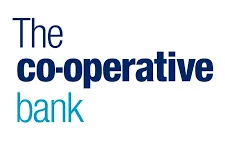1. The ultimate guide to the best UK student bank accounts for 2025
Congratulations! The exam results are in, your university place is confirmed, and an exciting new chapter of your life is about to begin. Amidst the flurry of packing lists and reading assignments, there's one crucial financial decision to make: choosing a student bank account.
This isn't just any current account. A student bank account is your financial command centre for the next few years. It's where your student loan will land, where money from family or part-time jobs will be deposited, and from which you'll pay for rent, books, and those inevitable late-night pizzas.
UK banks compete fiercely for your custom, knowing that many students stick with their university bank long after they graduate. This competition is great news for you, as it means they roll out the red carpet with two major perks: generous interest-free overdrafts and a tempting array of freebies, from cash bonuses to travel discounts.
But how do you see past the shiny offers to find the account that truly works for you? This comprehensive guide will break down everything you need to know, from deciphering overdrafts to comparing the top deals for 2025, helping you make a smart choice that will set you up for financial success at university.
2. Decoding the deals: how to choose your perfect student account
Before diving into the specific accounts, it's vital to understand what you're looking for. A flashy freebie might catch your eye, but the best student account is about long-term value and security. Here are the key factors to consider.
The overdraft: your financial safety net
The single most important feature of any student account is the 0% interest overdraft. This is an arrangement with the bank that allows you to spend more money than you have in your account, up to a pre-agreed limit, without incurring any interest charges. Think of it as a short-term, interest-free loan designed to help you manage the lumpy cash flow of student life, where you might have large expenses before your next student loan instalment arrives.
When comparing overdrafts, look for these three things:
- The size: Bigger is generally better. A larger overdraft gives you a more substantial buffer for emergencies or unexpected costs.
- Guaranteed vs. 'up to': This is a crucial distinction. A 'guaranteed' overdraft means that if you're accepted for the account, you will get the advertised amount (as long as you meet basic conditions). An 'up to' overdraft means the advertised figure is the maximum possible, and the amount you're actually offered will depend on the bank's assessment of your financial history, known as a credit check. As a young student, your credit history may be thin, which can sometimes result in being offered less than the headline amount.
- Tiered structure: Most student overdrafts are tiered, meaning the limit increases as you progress through your degree. For example, you might be offered £1,500 in your first year, rising to £2,000 in your second, and £3,000 in your third. Consider the total amount you'll have access to over the full length of your course.
A word of caution: An overdraft is a loan, not free money. It will need to be repaid after you graduate. Use it as a safety net for essential spending, not an excuse to overspend. Managing your overdraft responsibly is your first step towards building a healthy credit score.
Beyond the bling: evaluating the freebies
Banks use incentives to stand out from the crowd. These can be genuinely valuable, but you should always weigh them against the quality of the overdraft. Common freebies include:
- Cash: A straightforward cash bonus paid into your account.
- Railcards: A multi-year 16-25 Railcard can save you hundreds of pounds if you travel home or visit friends by train regularly.
- Vouchers: Often for food delivery services like Just Eat or Deliveroo.
- Discount cards: Memberships like the tastecard can offer 2-for-1 deals at restaurants.
To evaluate a freebie, ask yourself: "Will I actually use this, and what is its true cash value?" If you never travel by train, a free railcard worth £115 is useless to you. In that case, an account offering a £100 cash bonus would be a better choice. The best approach is to let the overdraft guide your decision first, and then use the freebies as a tie-breaker between closely matched accounts.
Check the small print: eligibility and conditions
Always read the terms and conditions. Most student accounts require you to be a UK resident, over 17 or 18, and have proof of acceptance onto a qualifying higher education course (usually one lasting at least two years). Some offers are only available to first-year students, while others allow you to switch your account later in your studies. Pay attention to any conditions required to get the freebies, such as depositing a certain amount of money by a specific date or making a minimum number of transactions.
3. The 2025 student account showdown: a detailed comparison
Here’s our in-depth look at the leading student bank accounts for 2025. We've analysed the overdrafts, unpacked the perks, and identified who each account is best suited for.
NatWest / Royal Bank of Scotland (RBS): the overdraft kings
- Headline offer: The largest potential overdraft on the market, paired with £85 cash and a four-year tastecard.
- The overdraft deconstructed: NatWest and RBS (part of the same banking group) offer an impressive tiered overdraft. You start with a limit of £500 in your first term, which can then rise to 'up to' £2,000 for the rest of your first and second years. From your third year onwards, you can apply for an enormous 'up to' £3,250 interest-free overdraft. As this is an 'up to' limit, the final amount will depend on your circumstances and credit history, but it offers the highest potential ceiling.
- The perks unpacked: Upon opening the account and meeting the eligibility criteria, you'll receive a straightforward £85 cash bonus within about 10 working days. You'll also be emailed a code for a four-year tastecard. This card provides discounts and 2-for-1 offers at thousands of UK restaurants, cinemas, and attractions, which could save you a significant amount if you enjoy eating out and socialising.
- Who's it for?: Students who want the largest possible financial safety net and are confident in their credit history to secure the higher limits. The tastecard makes it particularly appealing for foodies and social butterflies.
- Eligibility nuts & bolts: You must be on a qualifying full-time undergraduate or postgraduate course. Crucially, you can switch to this account at any point during your studies, not just in your first year.
Santander: the guaranteed all-rounder
- Headline offer: A substantial guaranteed overdraft, a free four-year railcard, and a cash prize draw.
- The overdraft deconstructed: Santander’s main selling point is its certainty. You get a guaranteed £1,500 0% overdraft in years one, two, and three. This isn't an 'up to' figure; it's a definite amount you can rely on, provided you pay in at least £500 every four months. For students on longer courses, the overdraft increases to £1,800 in year four and £2,000 in year five.
- The perks unpacked: The star attraction is the free four-year 16-25 Railcard, which typically costs around £30 per year. This gets you 1/3 off most rail fares in Great Britain, an incredibly valuable perk for anyone who will be travelling by train. On top of this, Santander is running a prize draw. By opening an account and using your debit card, you are guaranteed to win at least £20 cash, with the chance to win much larger prizes.
- Who's it for?: The student who values certainty over a potentially higher (but not guaranteed) limit. It’s the perfect choice for anyone who frequently travels by train to visit home or friends.
- Eligibility nuts & bolts: You can apply as a first-year student or switch in later, as long as you have at least two years of study remaining.
Nationwide: the cash incentive champion
- Headline offer: A generous guaranteed starting overdraft, coupled with a huge welcome package of £100 cash and £120 in Just Eat vouchers.
- The overdraft deconstructed: Nationwide offers a strong and clear overdraft structure. You get a guaranteed £1,000 in your first year. You can then request increases to 'up to' £2,000 in year two and 'up to' £3,000 in your third year. The initial guaranteed amount is very competitive for a first year.
- The perks unpacked: Nationwide’s incentive package is one of the most valuable. You receive £100 free cash within 14 days of depositing £500. Additionally, you get a £10 Just Eat voucher every month for a year, totalling £120. This is a fantastic perk for managing your food budget.
- Who's it for?: Students looking for the biggest upfront cash and voucher bonus. The guaranteed £1,000 overdraft in the first year provides a solid starting point, making it a great blend of perks and practicality.
- Eligibility nuts & bolts: This offer is primarily for first-year students. You can apply up to five months before your course starts or within the first year, but you won't get the cash offer if you're in your second year or beyond.
Lloyds Bank: the balanced contender
- Headline offer: A solid 'up to' overdraft combined with £100 cash and up to £90 in Deliveroo vouchers.
- The overdraft deconstructed: Lloyds offers a tiered overdraft that grows throughout your first year. You start with 'up to' £500 for the first six months, which increases to 'up to' £1,000 for months 7-9, and then 'up to' £1,500 from month 10 onwards for the remainder of your first three years. For longer courses, this can rise to 'up to' £2,000 in years four to six.
- The perks unpacked: The offer includes a £100 cash bonus, paid by the end of November if you deposit £500 by the end of October. The second part is a series of six monthly £15 Deliveroo vouchers (totalling £90). However, to get each voucher, you need to make at least 20 debit card payments from the account in the preceding month, which requires a bit more effort.
- Who's it for?: Students who plan to use this account for their daily spending (to meet the 20-transaction requirement for the vouchers) and would benefit from both cash and food delivery perks.
- Eligibility nuts & bolts: Available to students on a full-time course of two years or more. You can apply even if you're already a student. Halifax and Bank of Scotland (part of the same group) have similar offers.
Other accounts to consider
- HSBC: Offers a very large overdraft comparable to NatWest/RBS ('up to' £1,000 in year one, rising to £3,000 in year three). However, it currently comes with no significant sign-up freebie, making it less competitive unless you specifically want to bank with HSBC.
- Barclays: Provides a smaller overdraft ('up to' £1,000 in year one, rising to £1,500). Like HSBC, it lacks a major incentive for 2025.
- TSB: A more modest overdraft ('up to' £1,500 from the end of the first year). Its unique selling point is that it pays 5% interest on balances up to £500, making it an interesting choice for the rare student who expects to be consistently in credit.
4. Your student banking toolkit: application and management tips
Choosing the right account is the first step. Here’s how to get it set up and manage it effectively throughout your university career.
Getting started: the application checklist
Applying for a student account is usually a straightforward online process. To ensure it goes smoothly, have these documents ready:
- Photo ID: A valid passport or UK driving licence.
- Proof of address: A recent utility bill or bank statement sent to your home address. Some banks may accept a letter from your university or UCAS.
- Proof of student status: Your UCAS confirmation letter with your unconditional offer, or your A-level results slip showing you've met your conditional offer. The letter should have your UCAS code on it.
The best time to apply is as soon as you have your confirmed place. This gives the bank plenty of time to process your application, send your card, and set up your online banking well before term starts. Don't forget to give your new account details to Student Finance so your loan can be paid in without delay!
Not a first-year? the art of switching
If you're already at university and realise your current account isn't the best deal, don't worry. A few banks, notably NatWest/RBS and Santander, allow students in their second year or above to switch to them.
The Current Account Switch Service (CASS) makes this process incredibly simple. It's a free service that guarantees to move all your money, standing orders, and direct debits from your old account to your new one in just seven working days. Your old account will be closed automatically, and any payments accidentally sent to it will be redirected.
One critical warning: Before you switch, ensure the overdraft on the new account will be at least as large as the one you're currently using. You don't want to switch and find yourself with a smaller limit, which could put you into an unarranged overdraft.
Life after graduation: what happens next?
Your student account won't last forever. Once you graduate, your bank will automatically convert it into a graduate account. These accounts are designed to help you transition into working life by continuing your 0% overdraft for another two or three years.
However, the overdraft limit will usually be tapered down each year. For example, a £3,000 student overdraft might become a £2,000 limit in your first year after graduation, £1,000 in the second, and then £0 in the third. This is designed to help you pay it off gradually before commercial interest rates (which can be very high) kick in. When you graduate, make sure to check if your bank’s graduate offer is competitive or if you’d be better off switching to another provider.
A final thought: take control
Choosing your student bank account is your first major financial decision as an independent young adult. By looking past the marketing and focusing on the features that offer real, long-term value—primarily the interest-free overdraft—you can select a product that provides security and support throughout your studies.
Prioritise the overdraft, weigh the freebies carefully against your own lifestyle, and read the small print. By making an informed choice now, you're not just getting a great deal; you're laying the foundation for a confident and successful financial future. Good luck











